Iran, P4+1 continue sanctions removal talks in Vienna as Tehran rejects interim deal
Senior representatives of Iran and the five remaining signatories to the 2015 deal are proceeding with their diplomatic efforts in the Austrian capital of Vienna with the purpose of securing the removal of the US sanctions against Iran under the circumstances that Tehran still rejects an interim deal.
Iran and the remaining participants to the nuclear deal, officially known as the Joint Comprehensive Plan of Action (JCPOA), have been holding talks in the Austrian capital since April last year with the aim of reviving the deal by bringing the US into full compliance.
The US left the JCPOA in May 2018 under former President Donald Trump. The Vienna talks began on a promise by Trump’s successor, Joe Biden, to rejoin the deal and repeal the so-called maximum pressure campaign against Iran. Biden, however, has so far failed to undo Trump’s own undoing of Barack Obama’s Iran policy, which led to the JCPOA in June 2015.
On Sunday, the 29th day of the eighth round of Iran and P4+1 talks in Vienna, Iran’s lead negotiator Ali Bagheri Kani and Enrique Mora, the European Union’s deputy foreign policy chief and head of the JCPOA Joint Commission, held a meeting. Later in the day, the top Iranian diplomat met with delegates of the P4+1 group of countries.
The eighth round of the Vienna talks began on December 27 with a focus on the removal of all sanctions that the United States had imposed on Iran after its unilateral withdrawal from the JCPOA. The US is not allowed to directly attend the talks due to its pullout in 2018 from the deal with Iran.
During the new round of talks, Iran has rejected the notion of setting timelines for achieving an agreement, with its representatives noting that they prefer to clinch a logical accord within a logical period of time. Iran has also made its agreement to a new accord conditional on the realization of the Iranian nation's rights and interests.
As a result, the Iranian negotiating team has said time and again that achieving an interim deal is out of the question as Tehran seeks a sustainable, reliable and definitive agreement on the removal of sanctions imposed on the country.
The Islamic Republic has also rejected the pessimistic assessment of the talks by the US and the European trio – namely France, Britain, and Germany – as a psychological ploy to win concessions.
While the Iranian side has entered the new round of talks with clear-cut positions and well-define principles, the Western side, on the contrary, has proved to be riddled with many rifts and differences among them. The differences not only exist between the remaining members of the JCPOA and the United States, but even within the American team, which has been following the talks without being part of them.
On Monday, Iran’s Foreign Ministry dismissed “fabricated deadlines” set by the US and its European allies.
Speaking at a press conference in Tehran, Foreign Ministry spokesman Saeed Khatibzadeh said the US would better focus on its Plan A rather than threatening Iran with a Plan B.
In a tweet on Saturday, head of the Russian negotiating team Mikhail Ulyanov highlighted the significance of timing in the ongoing Vienna talks but emphasized that it should not be the “major factorو which defines an outcome of the negotiations on the future of the JCPOA.”
Timing depends on participants of the #ViennaTalks, doesn’t it? Under the circumstances timing is very important but it shouldn’t be the major factor which defines an outcome of the negotiations on the future of #JCPOA. If necessary the negotiators must expedite their work. https://t.co/QwyI4c6kh6
— Mikhail Ulyanov (@Amb_Ulyanov) January 22, 2022
In an interview with China Global Television Network (CGTN) earlier this month, Iranian Foreign Minister Hossein Amir-Abdollahian once again reaffirmed that Tehran has no intention to waste time or derail the sanctions removal talks in Vienna, criticizing the West, particularly the US, for failing to present any innovative proposals in the negotiations.
"If the parties can resume their commitments under the Iran nuclear deal, Iran will also return to commitments based on the agreement. If Iran can get the expected economic benefits from the agreement, so will all the parties," Amir-Abdollahian pointed out.
VIDEO | Gaza’s Ramadan: 1.7mn displaced struggle between hope and pain of war
Israel’s West Bank land seizures signal 'alternative homeland' threat: Ex Jordanian official
Tarique Rahman sworn in as Bangladesh’s new prime minister
UAE removes online references to Hind al-Owais after Epstein email revelations
Iran in no way seeking nuclear weapons: Pezeshkian
Oman: Iran-US indirect talks in Geneva achieve tangible progress
VIDEO | Press TV's news headlines
VIDEO | Israeli forces loot Palestinian homes across West Bank


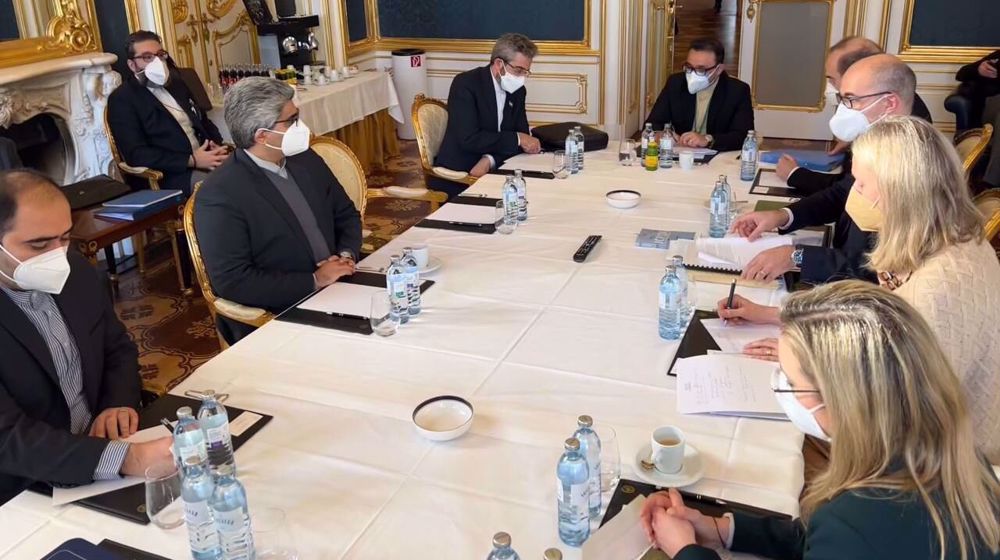
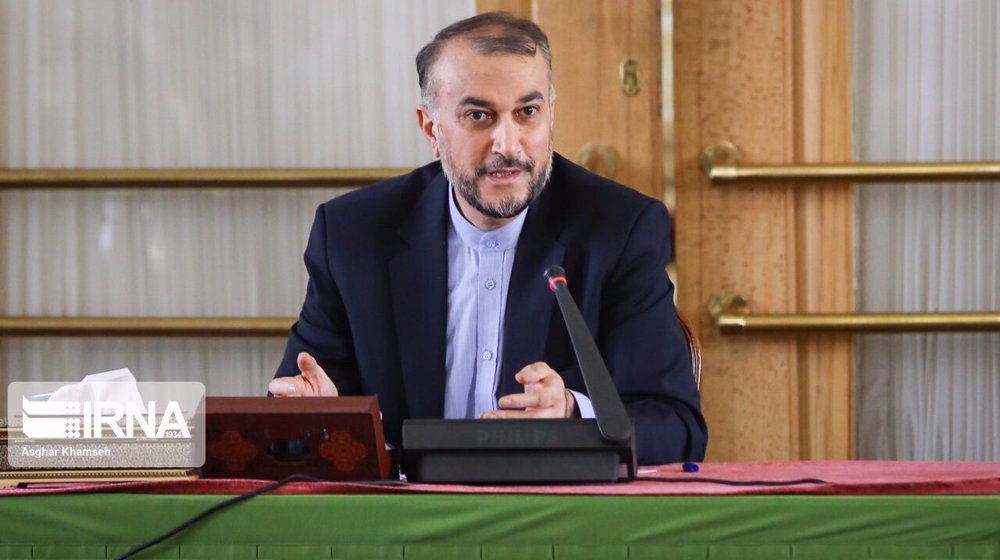
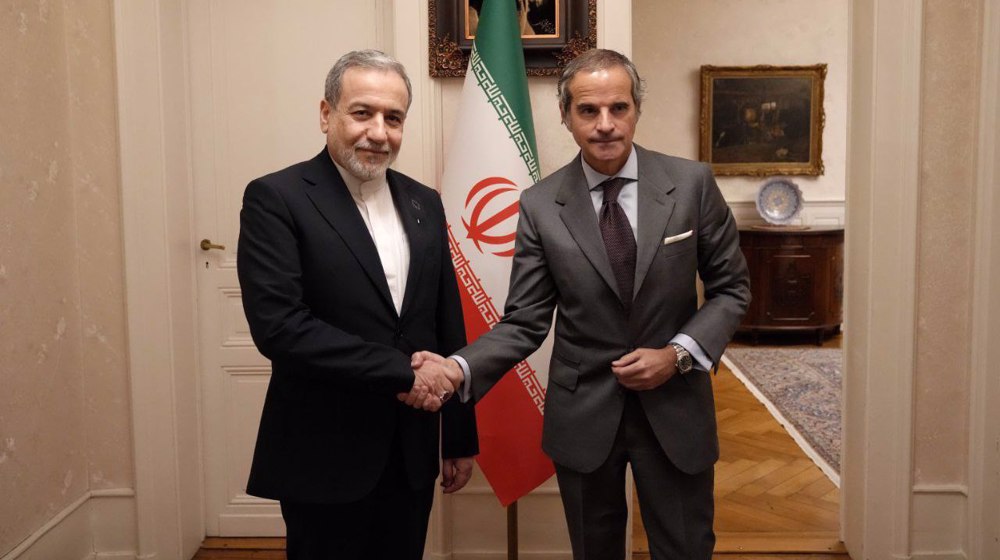
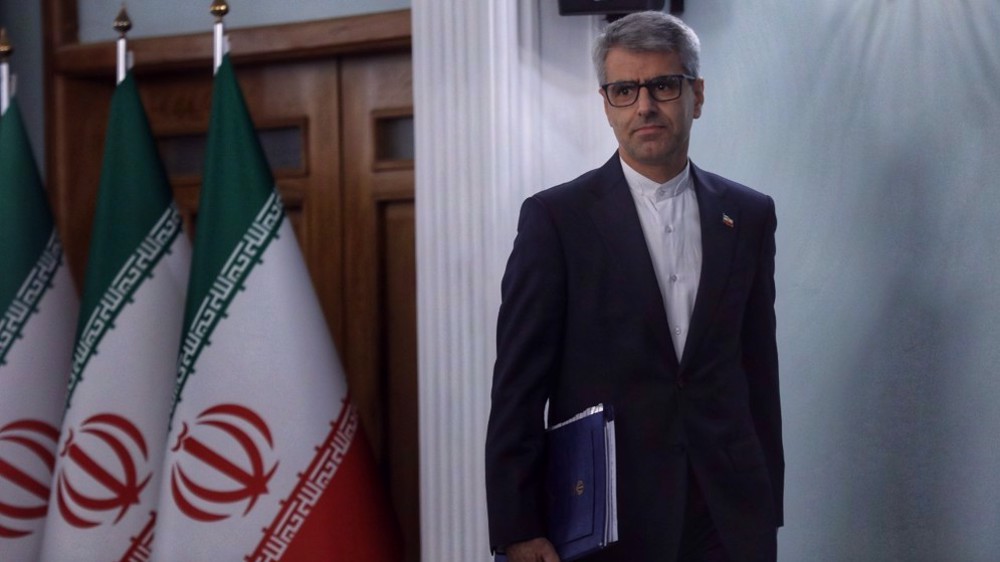
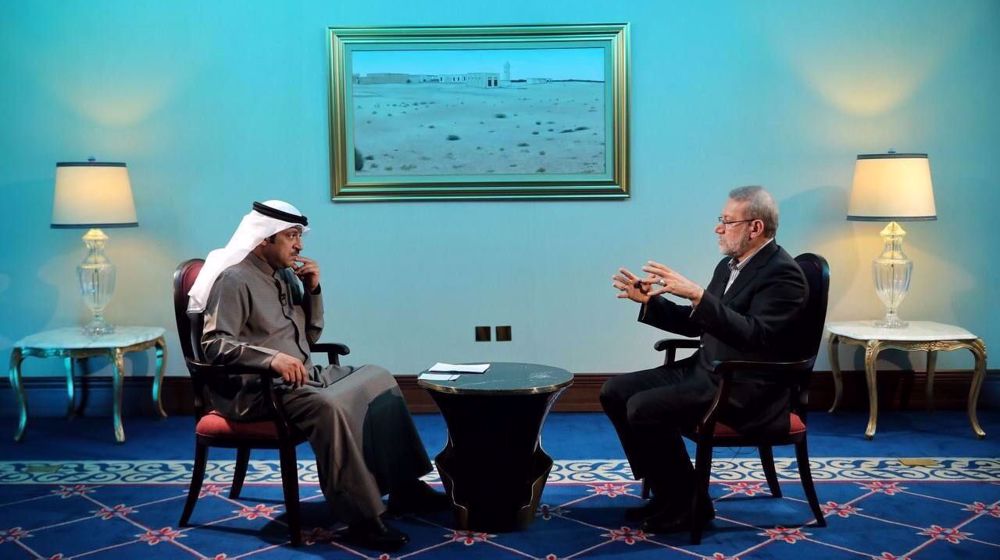




 This makes it easy to access the Press TV website
This makes it easy to access the Press TV website